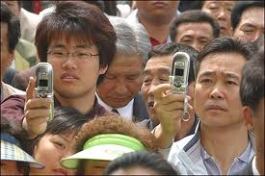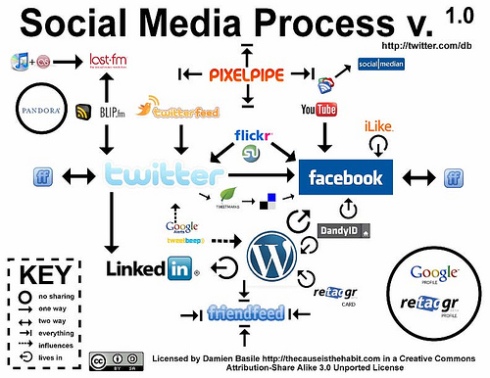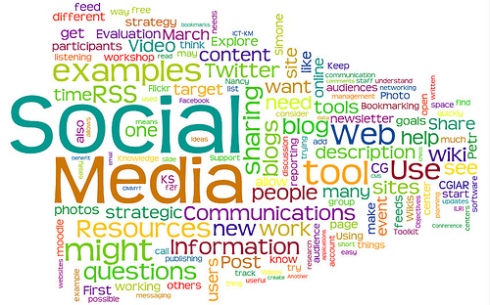

With the emergence of the internet, new ways for people, consumers or viewers to be active or gain information has become a lot easier due to the unlimited access to anything and everything with a click of a button. Next came the advancements in social media websites, starting with myspace followed by facebook, twitter, Pinterest and so on. These websites allow for people to connect with anyone around the world and to express their own opinions on anything and everything that they seem fit. I have mentioned in previous blogs that we live in the information or technology age, and this is evident with the internet as we have moved into a digital era, snapping a photo and uploading to Instagram in a matter of seconds, to capturing 10 seconds of hilarity and becoming a youtube sensation, the internet and technology age have made these simple tasks something that people few as a part of their everyday lives now. The Digital Revolution by Jenkins and Thorburn suggests “Many political commentators predicted that networked computing might be the decisive factor in the election of 2000. By November 2000, 64 percent of all voters were Internet users and 90 percent of Americans on the Internet were registered voters. The Web would offer, these commentators claimed, the least costly and most effective means of reaching likely voters”. The article continues to showcase ways in how campaigning showcased digital technology including Steve Jobs being the first person to announce his candidacy via a viral video.
Fellow blogger “to eat, sleep and shop” stated “Are people watching and sharing things because they care and want to do something about it in real life or are they just doing it because it is easy to do and they really don’t have to put action into it. I think we see this more and more for social activist events like Kony 2012 that was the talk of the world for months but now it seems to not even exist. People get so wrapped up into causes online but it is almost like a fad and then disappears.” This is a concept that I really want to present as people need to be more aware of what they are consuming and take into consideration that this might not be factual.
As students, we are at the front stage for being citizen journalists as we publish and post everything in our lives to the internet for the world to see. Social activism targets youth and plays to the advantages that social media has to offer. Social media websites are free and it truly doesn’t take much for a video or a picture to go viral in a mater of minutes, and therefore getting the message or idea across to millions of people in an instant instead of slowly developing from news coverage, etc. Take for example the Kony 2012 video, a 30 minute video that went viral over facebook, to celebrities tweeting the video link, Kony brought to light what seemed to be a tremendously huge issue and presented a way for us the viewing audience to stand up, fight and make a difference. The video had its 15 seconds of fame and gained a lot of publicity but slowly fizzled away. Social media presents the greatest outlet for people’s thoughts and opinions to be seen and heard on a grander scale which further develops the idea and presence of social activism and/or citizen journalsim as all it really takes is the simple click of a button. Posting pictures of my food, my gym shoes to a status about anything, I have become a citizen journalist in my own way presenting and publishing ideas and thoughts that I feel are important.
With the Kony video, i did feel I became more engaged in the issue and purchased the $30 Kony Kit (shirt, posters, etc.) and I do feel that social media makes people more aware of issues that would not typically get airplay. I would say that I am encouraged to participate because I am able to be more aware and educated on what the issue or idea being presented is. This does not mean that just because it is a viral social issue, etc. that I am automatically going to jump in head first to save whatever is being presented, we still need to be aware as digital and social consumers that everything we are being shown may not be the truth and that it is very simple for people to twist reality in a 30 second video or tweet. The article Tweets and Truth by Alfred Hermida suggest and backs up a lot of the ideas I have been suggesting “Digital media technologies such as Twitter facilite the instant, online dissemination and reception of short fragments of information from sources outside he formal structures of journalism. Open, networked digital media tools challenge the individualistic top-down ideology of traditional journalism, while services like Twitter question a news culture based on individual expert systems over knowledge-sharing. The impact of social media on the definition of authority is not just affecting the profession of journalis, but also the fields of academic knowledge and medicine”.
When looking at my storify board, I choose not to pick a specific event or issue being covered in the media, instead being a pop culture major I choose to look at Big Brother and the differences in the American and Canadian version. Thousands of people have been tweeting about BBCAN and there have even been several articles about how it is holding it’s own and is comparable to the American version. Taking pieces of information from other citizen journalists, I was able to create an entire story or event based around BBCAN and how the show is doing, etc. By adding pictures, tweets, facebook posts and blogs I was able to create a page solely focused around this topic which is a pretty cool and interesting concept. This is another reason why social media is so amazing and why it is so present in our day to day lives, as it serves as an outlet for people to seek what they want to know and not just what they are being shown.
Do your research and be media literate!
*All images courtesy of google images*



